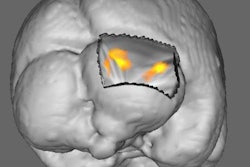Functional MRI (fMRI) scans are helping Japanese researchers develop a method to assess the self-confidence of patients with conditions such as depression and Alzheimer's disease, according to a study published online December 15 in Nature Communications.
Called decoded neurofeedback, the technique uses fMRI to monitor and detect specific complex patterns of brain activity associated with self-confidence and then manipulate the brain so patients don't think so negatively about their deficiencies.
Before using decoded neurofeedback, the researchers first applied ordinary multivoxel pattern analysis to blood-oxygen-level-dependent (BOLD) fMRI data to examine the relationship between confidence and internal perceptual signals, as well as the nature of brain activation patterns related to confidence.
"With neurofeedback, we were then able to manipulate confidence in the expected directions (up and down), without changing perceptual performance and without the participants' awareness of the content or purpose of the manipulation," wrote the group led by Dr. Aurelio Cortese from the Advanced Telecommunications Research Institute International in Kyoto (Nat Commun, December 15, 2016).
The 17 study participants received a small monetary reward when a pattern of high confidence was detected during training sessions. This allowed the researchers to directly boost the person's confidence without him or her knowing it.
The researchers are currently working on the development of potential new clinical treatments for patients with various psychiatric conditions.



















